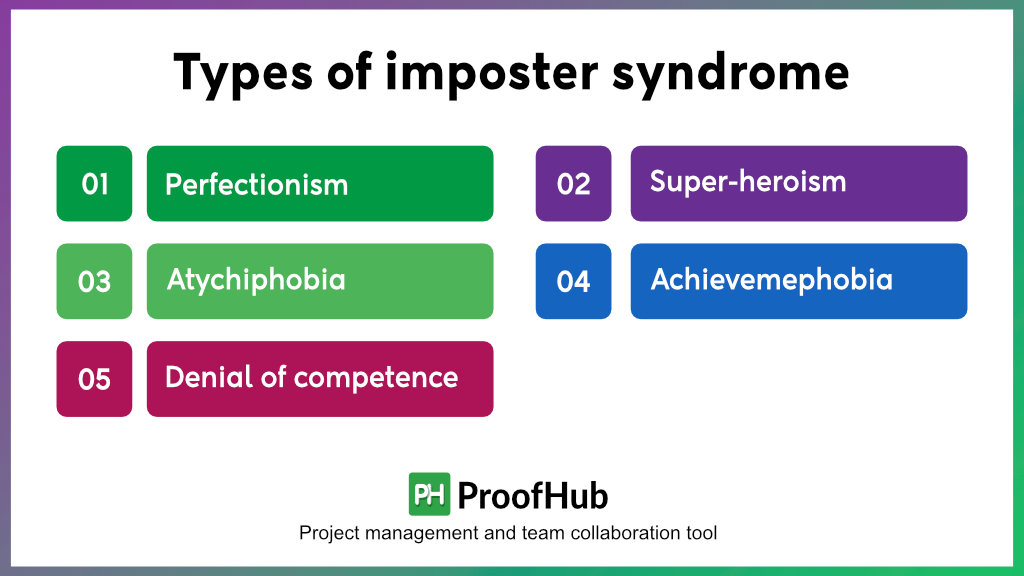Does “feeling like a fraud at work” hold you back from being confident in your job? Then you might be experiencing the “impostor syndrome at work.”
My first-hand experience with imposter syndrome occurred when I discovered some team members suffering from it at work. Signs included an inability to complete tasks on time, fear of being appreciated for success, nervousness in meetings, and feeling like a fraud in their profession despite years of experience.
Understanding and addressing imposter syndrome isn’t about labeling it as good or bad; it’s about recognizing it as an emotion that, if left unchecked, can hinder personal and professional growth. With patience and focus, we can transform negative thoughts into a positive mindset and regain self-confidence.
Let’s explore it more in-depth and learn how to overcome imposter syndrome at work.
What is impostor syndrome?
Imposter syndrome (IS) is a “behavioral phenomenon” of self-doubting one’s own skills, achievements, and intellect, despite the fact that you are capable & skilled. These feelings of self-doubt hold people to celebrate their success and feel that they don’t deserve their success. Such sentiments cause anxiety, depression, or low esteem in such persons.
Imposter syndrome at work signs & symptoms
Thoughts like “others think I am a perfectionist” “smarter than I think about myself” and “feeling like a fraud at work” as if you have achieved your position with just luck are the major indications that you might be experiencing imposter syndrome at work.
Following are the signs that an imposter can feel at work:
- Too much obsession with better productivity
- Not celebrating your achievements & appraisals
- Feeling too much occupational burnout & stress all the time
- Constantly considered unworthy & unfit for the job
- Unable to present your ideas or work at first
- Get delay in achieving deadlines
- Unable to try new ideas in your working
- Anxiety & unable to make decisions
- Less motivation & career planning
- Increase the probability of procrastination
- Impact interpersonal relationships within the company
If someone is trying to avoid these signs of imposter syndrome, then it can be a sign that they are suffering from depression. To know if you are suffering from imposter syndrome or not, you first need to know all types of imposter syndrome.
Types of imposter syndrome
Based on research and analysis to date, imposter syndrome can be categorized into 5 types:

1. Perfectionism
Perfectionism is a sequence of perfectionist and hyper-competitive behaviors to achieve self-imposed, practically unattainable goals.
People suffering from this type start to sacrifice their own lives and self-interests. They are always very hard on themselves to achieve more and more.
2. Super-heroism
Super-H is characterized by over-preparation for every task and attempts to do everything, even when it is not required. This extra workload can lead to occupational burnout and also negatively impact the mental health of the concerned employee.
3. Atychiphobia
Atychiphobia is called the fear of failure. People feel like an imposters when they constantly go through fear of being humiliated or shamed in front of a team, head, or boss due to incomplete work or not done work accurately.
4. Achievemephobia
Achievemephobia is actually a fear of success. Procrastination, low goals, perfectionism, and quitting are all symptoms. It could be due to a fear of the unknown changes brought on by success. Two of the fears are pre-existing workloads or higher expectations in the future.
5. Denial of competence
People with this type of imposter syndrome feel and want to do everything by themselves, hence denial of competence. They think asking for help from others may show their weakness. Therefore, they are also known as “soloists.”
However, this doesn’t mean that the term “incompetence” is considered one of the signs of imposter syndrome.
Imposter syndrome vs incompetence: What is the difference?
Incompetence
Incompetence is simply an inability to perform a function and might be due to a lack of an accurate skill set or proper information.
We can improve our skill set by knowing what things we are missing. Once we acquire that knowledge or skill, we usually come to the stage of conscious efforts, where we gain competency by moving towards achieving mastery in related skill sets.
You can’t say incompetence is imposter syndrome.
However, when you are an imposter, you might suffer from incompetence.
Incompetence in imposter syndrome
It is all about your mindset. When we stick to only what we are doing, it is right. We aren’t able to think that we can grow, learn something new, or acquire other skills to become better. We acquire unconscious incompetence. Here’s the point where people become wrong.
A fixed mindset is what leads to incompetence and being an imposter. So, first, work to mold your mindset to always adapt to change and have a positive attitude to overcome imposter syndrome.
However, this is not only the factor that we need to look at in this scenario. There is more I need to do. Let’s take a look at how we can defeat imposter syndrome:
How to overcome imposter syndrome at work?
You can overcome imposter syndrome by turning your weaknesses into your strengths. Yes, this is the only way through which you can defeat this syndrome. It can motivate us to work harder, and smarter and make us better learners.
Well, it’s easy to say, but when it comes to implementation, people need great motivation and self-determination to do so.
However, this can be achieved when you are constantly motivated by your team and manager. Along with tips that can turn your syndrome into strength, you need a great collaboration tool to be in constant touch with your motivators and not feel detached, backed up, or alone.
Not only this, but you also need to manage your work properly to avoid unwanted delays or workload. Well, with an all-in-one project management tool, you can do it.
Now with the supportive community, we can start our journey to change our mindset, attain more skills, and use imposter syndrome to our benefit:
7 Tips to deal with imposter syndrome at work

1. Positive self-talk
Positive thinking and talking are very essential to having a positive mindset and leaving the fear of failure or success. Insecurity in language can cause self-doubt. Do self-talk, and use language that encourages you to increase your self-confidence.
For this, let’s do an activity:
- Note what you think and say for the next week.
- Note down the words according to you that are creating insecurity.
- Then, try to replace it with words that creative positiveness and a sense of confidence
For instance, use words like have the opportunity to, would like to, will try instead of saying should have to, well, maybe and so on.
Self-awareness, including what kind of words you are speaking, and what you think subconsciously, improves your productivity at the workplace in a positive way.
2. Try to learn from failures
Don’t be afraid of making mistakes; even better, learn from them. Use competence to figure out what works rather than getting all the things in the box. All successful people are also not afraid of failure, and that becomes the reason for their big achievements.
“A person who never made a mistake never tried anything new.” Albert Einstein
“You can’t let your failures define you. You have to let your failures teach you.” Barack Obama
“Failure is simply the opportunity to begin again, this time more intelligently.” Henry Ford
“Failure is so important. We speak about success all the time. It is the ability to resist failure or use failure that often leads to greater success. I’ve met people who don’t want to try for fear of failing.” K.Rowling
Don’t be sad, Evaluate, Learn, and Let the fear go.
Do an activity when you feel you have failed:
- First, just write it down on a notepad.
- Find out what new you have learned, both professionally and personally.
- It gives you new experiences that you might have been unaware of earlier.
- Learn that and stand up again.
Learn more about how to get over from fear of failure, and look at these “simple tips to overcome the fear of failure”.
3. Balance between familiar & new work
Avoid sticking to the familiar, but that doesn’t mean rushing for new and uncomfortable things. Make a balance between the two. Carry out your regular work every day but try to learn something new related to either your profession or associated profession.
It will help you to learn new things that add value to your professional career. This way you feel less stressed. Not only this, but it also helps to boost your confidence and in turn reduces your feeling of unworthiness and anxiety related to it.
4. Aim for excellence, not perfectionism
“People call me a perfectionist, but I’m not. I’m a rightist. I do something until it’s right, and then I move on to the next thing.” James Cameron is the director of movies like Titanic, Avatar, and The Terminator.
It’s good to meet expectations, but when you aim, try to aim for excellence and quality in your work rather than perfection. As the definition of perfection for you is different from others; Create your limits to reduce your strict commitments towards perfectionism.
Adopt a proactive approach to be ready always for changes & always be ready to learn something new and also from others’ perspectives, but not follow them religiously. This will all bring a new approach to your work, and you can aim for excellence that can satisfy you.
5. Keep a daily review of your work
Managing your work gives you a sense of manageability, this reduces your stress level, and you can put the rest of your time into other creative or learning activities. This way you have much time to not only complete your work but also learn something new.
Use good task management software that helps you track your project record, project time, dependencies, and good coordination between the employees. This way, your anxiety levels get reduced, you’ll be more organized, and feel no occupational burnout. You are also able to know your capabilities and this in turn brings confidence in you.
Always keep the following things in mind while achieving a task:
- Make a list of all upcoming tasks that are under your control or for which you have accountability.
- Decide & document which task is important and also which task needs to be refined in quality.
- Afterward, make your timetable accordingly, give full attention to every task, & avoid false limits.
6. Set your professional Mantra
Don’t focus on what you can’t do, focus on what you do for years and what you are able to achieve.
To follow this, do an activity:
- Write a paragraph or list of points that include all your skills and attributes.
- Now write what you can do with your skills rather than what you can’t.
For example:
‘I have accomplished four big projects this year, created great relationships with top companies, and still have my sense of humor to work in a healthy manner.’
‘I always do deep research while doing a particular task, always have ideas before my work and related to my life.’
- Now give a little time every day to make your skills stronger & define what works you can achieve with it.
7. Find a mentor
Find a mentor at your workplace to share things with. This person can be anyone, your project manager, HR or team lead, else your colleague. Share out.
This helps you to build good relationships at the office place, helps you to open up more, you’ll know new things, your anxiety will be reduced and you can show your ideas and do work more confidently. Try to keep in touch with your mentor always through a good collaboration tool, so that you can reach out to them anytime for help.
Do a weekly “speak out” activity to give yourself an idea of where you stand now to deal with your imposter syndrome.
These are some of the ways that can help you to overcome imposter syndrome at work. Think twice before making decisions about yourself. Everybody’s mindset is different, and so are their abilities and capabilities to do a task or work.
Should I tell my boss I have impostor syndrome?
The answer is YES.
When you are doing everything to manage your negative thoughts and your insecurities to overcome impostor syndrome at work, why hold yourself back from telling this to your work authorities?
When you get to know them, they can understand why you are not delivering work on time, why you are unable to give variations in your work, and how they can help you out with this. Talking to managers helps to redecide your goals, and your daily task work and this reduces your workload.
Take this as an opportunity and a talk-out activity, where you are leaving your fear of failure and perfectionism behind to gain better insights into your working style.
Here we talk about how an employee can manage their impostorism at work and should tell about this problem anyone in the office or not. But how the official authorities can help their employees manage this problem is also important.
The authorities, including CEOs, team leaders, HRs, and managers, should be responsible and knowledgeable enough to understand this problem and find solutions to turn employees’ self-doubt into self-confidence. Let’s take a look at how they can do this:
How to help employees with imposter syndrome as a manager?
Do you know that the cost of imposter syndrome is not only at the individual level but also at the organizational level? Employees’ low esteem also impacts the company’s productivity.
To manage this problem as an official, first, you need to know the factors at your office that are igniting the imposter syndrome at work:
- Poor work-life balance
- Encouraging and rewarding employees for overwork
- Irregular feedback with harsh criticism
- Favoritism & creating an overly competitive workplace culture
- Working in limited team collaboration
- No ‘coaching style’ culture
- Limited opportunities for personal growth
- Lack of well-being support
These issues at the office give rise to this problem among employees. So, very first of all, these issues need to be addressed. Making a workplace environment happy and that enthusiastic employees to work. Create fun at the office, increase collaboration between employees, introduce coach-style leadership, manage work-life balance, and increase opportunities for personal development. You can do more to make your office a stress-free workplace.
Read this article on “Happy work culture – What it is, why it matters, and how it’s built” to improvise your office culture.
Other than this, there are more things that a manager can do to help their employees overcome imposter syndrome at work:
- Help employees challenge their negative ‘self-talk’
- Provide them with an opportunity to develop their relevant skills & confidence
- Have regular feedback and coaching conversations
- Be equipped with a good collaboration & project management tool
- Celebrate hard work and give rewards
- Promote the right values and appreciate diversity
- Include employees experiencing imposter syndrome in decision-making
This way managers not only fulfil their responsibility towards the company’s productivity but also the company’s cultural development.
To sum up
Imposter syndrome at work is now a common problem these days due to a competitive lifestyle. But, this can be convertible to get strength and reach high on the professional ladder. The thing is only to know the right technique and tricks through which we can ditch imposter syndrome. Many famous celebrities recognize their problem, use them, and reach the heights of success, you can also do it. Just keep motivating yourself be organized, and follow a timetable and feedback at work.
Related articles
- How to be more productive at work without breaking a sweat!
- Feeling stressed at work- symptoms, causes, and solutions
- 35 Productive things to do when bored at work or home
- 10 Effective ways to stay organized at work
FAQs
Is it normal to feel imposter syndrome at work?
Today, when everyone is struggling to secure their career, feeling like an imposter at work is normal. However, employees can overcome imposter syndrome with some mindful tips & tricks.
Who is most likely to get imposter syndrome?
Anyone can experience imposter syndrome. Especially those who always want to be at the top, work in a shell, and want more than 200% perfection in their work.
What is the root of imposter syndrome?
The root of the imposter syndrome can be many, including competitiveness, the higher expectations of parents, inflation, the need to get a secure position, and many more.
Is imposter syndrome a lack of confidence?
Not really. Many people lack confidence at some point, but when you constantly start doubting yourself, then it can be a sign of impostorism.
Can imposter syndrome be cured?
There is no particular treatment for imposter syndrome, but people seek mental health professional’s help & attain a positive mindset to get out of this problem.

